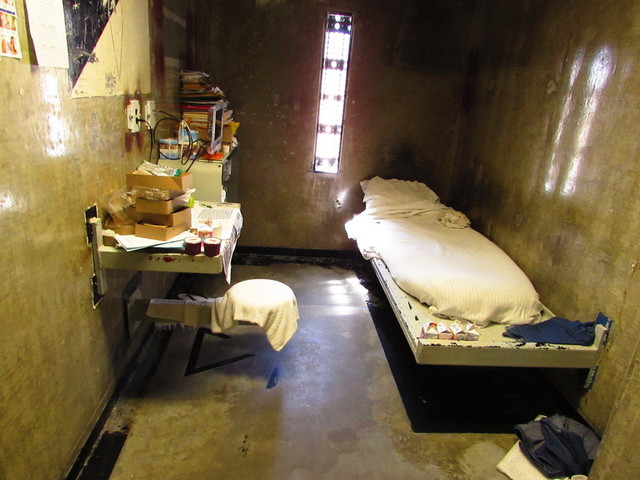
By Julie Small
In response to a court order, California prison officials proposed a new approach Friday to how they treat mentally ill inmates who break rules or commit new crimes. The judge who ordered the change immediately approved the plan.
Right now, if a mentally ill inmate refuses to follow orders or attacks another inmate or guards, the prison sends him to a segregation unit. In segregation, prisoners spend more time confined to their cells and must submit to routine strip searches for weapons and drugs. Advocates for inmates have long insisted the conditions only worsen mental illness. Earlier this year, U.S. District Judge Lawrence Karlton unequivocally backed them up.
In an April ruling, the judge wrote, “placement of seriously mentally ill inmates in California’s segregation housing unit can and does cause serious psychological harm” by worsening symptoms, inducing psychosis and increasing suicidal urges.
In a statement, Dana Simas, spokesperson with the California Department of Corrections and Rehabilitation said that CDCR was continuing to make "lasting cultural changes to how the Department responds to and treats mentally ill inmates." Simas also said that CDCR would "continue to work with all parties to improve mental health care for inmates and to ensure that there is strong collaboration between custody and mental health staff."